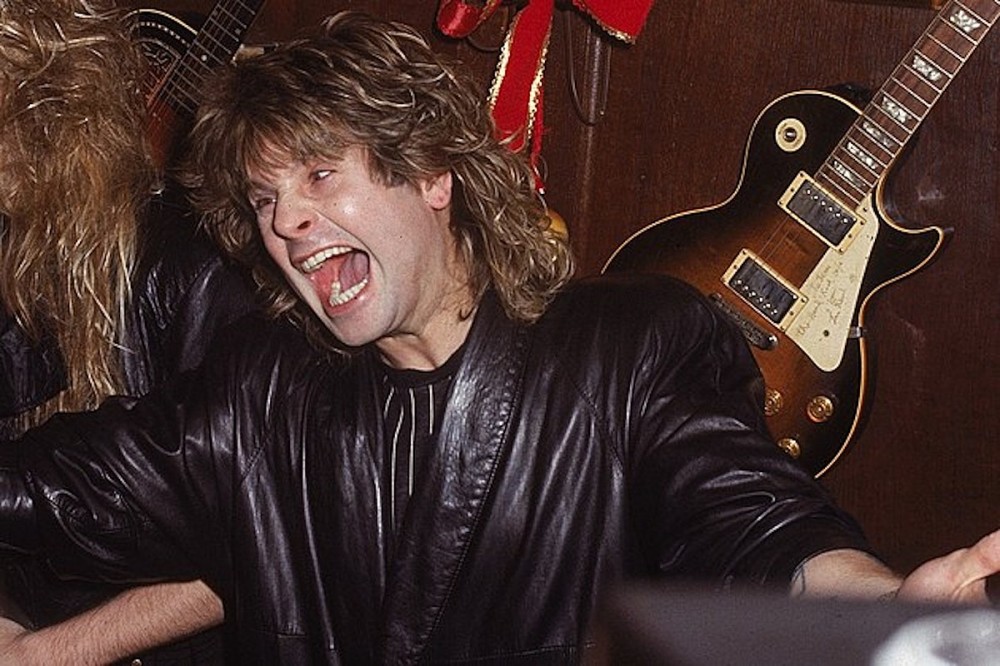
Ozzy Osbourne’s ‘Blizzard of Ozz’: 10 Facts Only Superfans Would Know
After his dismissal from Black Sabbath, Ozzy Osbourne felt his career was over. Drug and alcohol-ridden and living in awful conditions, the singer was giving up, and chose to let the party end him until he was confronted by Sharon Arden.
The daughter of Black Sabbath's manager, Arden knew Osbourne had more life and music left in him, so she offered to manage him (and they later married). He eventually got a band together and began working on what would be his first album without Sabbath, Blizzard of Ozz — the piece of work that would ultimately turn his entire life around.
1. It was supposed to be released as a band effort rather than solo.
Despite being recognized as Osbourne's debut solo album, it was actually supposed to be considered a band effort. It was supposed to be a self-titled album by the band Blizzard of Ozz, with Osbourne's name added for credit. The cover ended up displaying Osbourne's name in larger font than the band name, so it appeared to be an album by Osbourne himself, instead.
2. Osbourne felt it was a competition.
The singer later admitted he felt like the album was going to be in direct competition with Black Sabbath, who had replaced him with Ronnie James Dio. Their first album with Dio, Heaven and Hell, was released just months before Blizzard of Ozz and was very successful.
“I’d be talking out my arse if I said I didn’t feel like I was in competition with Black Sabbath when we made Blizzard of Ozz. I wished them well, I suppose, but part of me was shitting myself that they were going to be more successful without me," Osbourne wrote in his autobiography, I Am Ozzy.
3. …but it outsold his best album with Sabbath.
Blizzard of Ozz outsold Paranoid, having sold over six million copies worldwide. Paranoid sold more than five million worldwide.
4. They didn't say it all.
A last-minute song called "You Said It All" was put together quickly by the band because the label wanted a new single, but it was ultimately never recorded. A live version of the song appeared on the 1980 Mr Crowley Live EP.
5. Gary Moore was originally supposed to play guitar on it.
Osbourne's first choice for a guitarist for his band to record the album was Thin Lizzy's Gary Moore. Moore was "always hot and cold" according to Osbourne, most likely because of the singer's unreliable reputation that got him fired from Sabbath to begin with.
Quiet Riot's Randy Rhoads got the gig on the sly, anyway. Osbourne fondly reflects on how strong their musical chemistry was.
6. The song "Suicide Solution" was written about Osbourne.
Bassist Bob Daisley wrote the lyrics for "Suicide Solution," which he said was based on Osbourne's self-destructive behaviors. Many have speculated the song was about AC/DC's Bon Scott, who had passed away around that time from alcohol poisoning, but Daisley affirms it's about Osbourne.
“I was going the same way as Bon Scott,” the singer acknowledged in an interview with Classic Rock magazine.
7. And he was later sued over it.
In 1986, a teenager named John McCollum shot himself and was found with headphones on. According to his parents, side one of Blizzard of Ozz was on his turntable, which contains "Suicide Solution." Because of lyrics in the song like, "But you lie there and moan
/ Where to hide, suicide is the only way out," the teen's parents sought legal action against Osbourne and his labels.
Though Osbourne felt terrible, he didn't feel he was at fault. The judge threw out the case because there wasn't sufficient evidence to claim the singer was trying to convince anyone to take their lives, and he was rightfully expressing freedom of speech. However, many felt he should have been more careful.
8. A goodbye letter.
Osbourne later admitted that he felt the song "Goodbye to Romance" was a goodbye message to Black Sabbath.
9. The issues of a reissue.
Osbourne had to hire a new bassist and drummer for the 2002 reissue of the album, since he had been sued by Daisley and original drummer Lee Kerslake for unpaid royalties after they were fired. The singer's drummer at the time of the reissue, Mike Bordin, re-recorded the drum parts and Metallica's Robert Trujillo played the bass.
10. A tribute to Rhoads.
"RR" is a Rhoads outtake that was recorded during the Blizzard sessions. It was later included on the reissue of the album as a tribute to Rhoads, who passed away just two years after the album initially came out.
Top 80 Hard Rock + Metal Albums of the 1980s